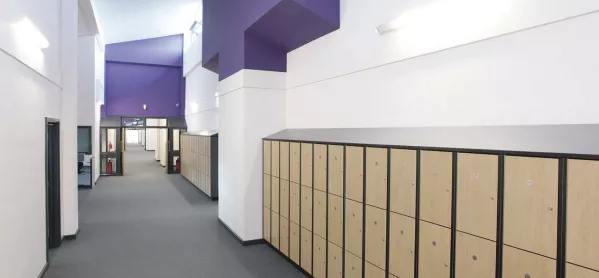- Home
- How much can you tell about a school in just five minutes?
How much can you tell about a school in just five minutes?

I pose this question because on countless occasions I have heard people in education assert that within the first five minutes of being in a school they are able to tell whether it’s “any good or not”. I have always tended just to accept this presupposition without questioning it too much. It’s one of those throw-away comments you hear so often that you just assume it must be true.
However, I’ve recently begun to question how valid this statement is. Is it really possible to make reliable judgements about such a complex organisation as a school within five minutes of walking through the front door? And, perhaps more importantly, are there not significant dangers in believing that we can?
First impressions clearly have a powerful impact on all of us. Whether it’s meeting someone for the first time, or our first experience of dealing with a company or organisation, our brains immediately start making snap-judgements - we can’t help it.
When it comes to schools, the look of the building as we enter, how we are greeted by the reception staff, the early conversations we overhear and the first classroom we walk into all have a powerful effect on us.
When thinking about prospective parents and visitors, schools are right to be acutely mindful of this. A friendly, well-organised receptionist can be worth their weight in gold.
School ethos
But to return to my original question - what reliable conclusions, if any, can you draw about a school from these very early encounters?
I have some sympathy for the argument that you can start to get a sense of the overall ethos of a school quite early on. While I’m not convinced that a newly decorated seating area or the quality of the displays in the corridor can tell you an awful lot, observing and listening to how staff interact with the pupils and each other can be quite revealing.
Even then, though, I think we need to be very careful in terms of jumping to conclusions too quickly. Forming opinions about the school’s overall approach to behaviour, for example, based on one single interaction you may have just seen has the potential to be very misleading. It may just be that you have observed the “exception to the rule”. Even the very best professionals have their moments and there is no way of knowing whether or not you have just witnessed one of those.
Where I become really uncomfortable though is when we start thinking we can draw conclusions about the overall quality of education provided in such a short space of time, or that our early judgements about the “feel” or ethos of a school can somehow give us a reliable indication of the quality of teaching, the curriculum or the school’s approach to SEND.
A friendly, welcoming ethos is clearly important and desirable, but it doesn’t necessarily mean great learning is taking place. A welcoming ethos is a sign of just that, and not necessarily anything else.
Complex and multifaceted
Equally, we know that when it comes to the quality of teaching, significant variation exists within schools themselves. Seeing excellent teaching in the first two classrooms you visit doesn’t necessarily mean it is being replicated throughout the building and vice-versa. Just because the first three books you look at aren’t great, this does not necessarily mean there is an endemic problem with standards of work across the whole school.
Schools are highly complex and multifaceted organisations. To understand what’s really going on inside them thorough analysis, careful consideration and an open mind is required, not just a quick walk down the corridors.
The idea that even the most experienced educationalists can make such snapshot judgements has the potential to be quite dangerous. Suggesting that it is possible to make reliable judgements about schools after just a few minutes puts us in a difficult place, especially when it comes to inspections. Such misplaced confidence in an inspector would be deeply troubling. At worst it can lead to judgements being formed early on and then everything else being seen through the prism of these early conclusions. Such confirmation bias should be avoided at all costs.
First impressions undeniably count, but when it comes to judging schools we would do well to remember that quite often, they might just be entirely wrong.
James Bowen is director of middle leaders’ union NAHT Edge. He tweets @JamesJkbowen
Want to keep up with the latest education news and opinion? Follow Tes on Twitter and Instagram, and like Tes on Facebook
Keep reading for just £1 per month
You've reached your limit of free articles this month. Subscribe for £1 per month for three months and get:
- Unlimited access to all Tes magazine content
- Exclusive subscriber-only stories
- Award-winning email newsletters



